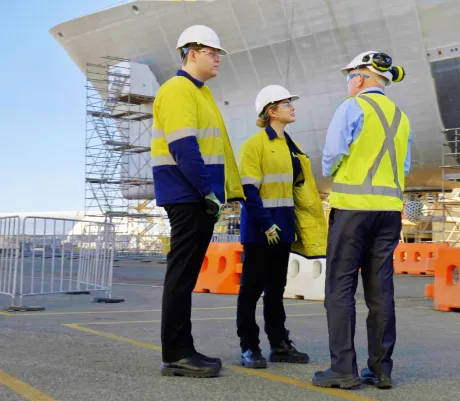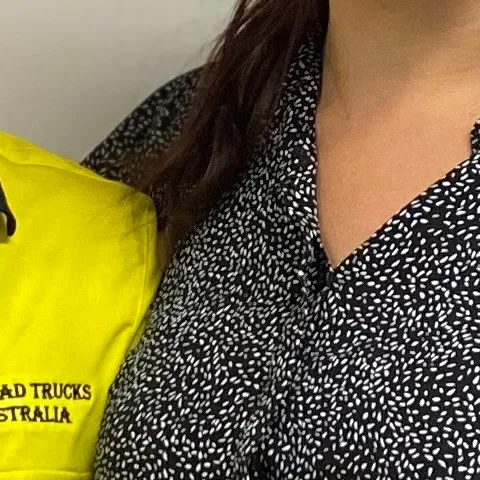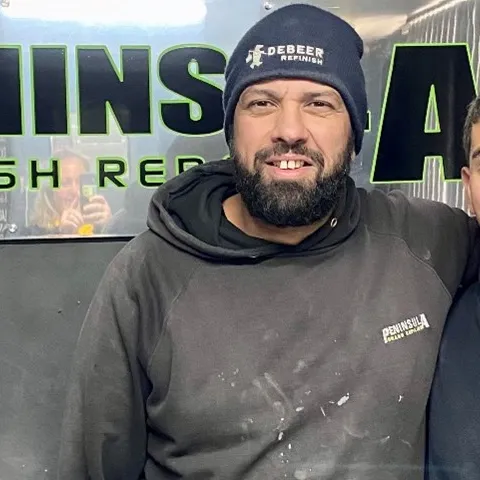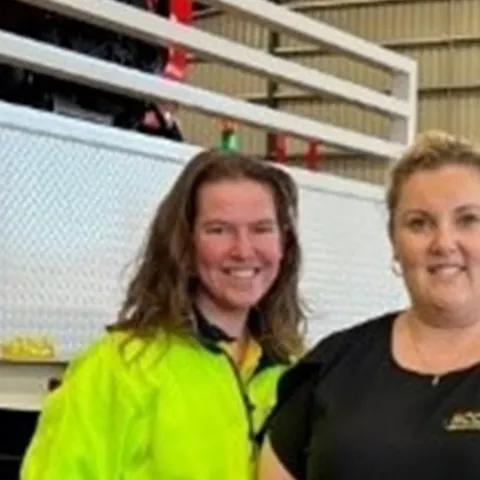What employers say
91%
agree apprentices fill skills shortages*
89%
agree apprenticeships provide opportunities for existing staff to develop*
86%
agree apprentices bring new energy to a workplace*
*MEGT Customer Satisfaction, 2024
How MEGT can help
As Australia’s apprenticeship experts, MEGT has helped over 1.5 million Australians into work and supported over 250,000 businesses to find the talent they need.

MEGT Apprentice Connect Provider
As Australia’s largest single Apprentice Connect Provider, MEGT offers a range of free services including fast and efficient sign-up and administration of Training Contracts, assistance with government financial incentives and claims, and ongoing support and mentoring for both employers and their apprentice.

MEGT Recruitment and Management Services
MEGT’s Recruitment and Management Servies (RMS) team recruits and directly employs apprentices and trainees through our Group Training Organisation (GTO) service. We place them at ‘host employer’ worksites where they are provided with day-to-day work, supervision, and on-the-job training.
FAQs
Before an apprenticeship or traineeship can be registered, an employer and an apprentice or trainee need to sign a Training Contract.
The contract outlines each party’s responsibilities and entitlements and is approved by the relevant State or Territory Training Authority (STA). An Apprentice Connect Provider, like MEGT, can initiate the sign-up and official registration of the contract.
There are a number of important people involved in helping apprentices and trainees complete their qualification.
- Employer. Hires the apprentice and provides support, on-the-job training and supervision. In some cases, a Group Training Organisation (GTO) will recruit and employ an apprentice and place them with a host employer.
- Apprentice/Trainee. The new or existing employee works towards their qualification through a combination of on-the-job training and formal study.
- Apprentice Connect Provider. Contracted by the Australian Government to administer Training Contracts and provide support to apprentices, trainees and their employers.
- Registered Training Organisation. Develops the Training Plan, delivers off-the-job (usually classroom) training, conducts assessments and issues certificates of completion.
- State or Territory Training Authority. Government departments responsible for registering and administering Training Contracts.
- Federal Government. The Department of Employment and Workplace Relations (DEWR) is responsible for Australian Apprenticeship policies and funding.
An apprenticeship or trainee wage depends on the agreement, award, or legislation they are covered by.
The Fair Work Ombudsman is the best place to find information and advice about pay, conditions, and workplace rights and obligations. Employers can register an account with Fair Work to be notified about changes to pay and conditions relevant to your workplace. You’ll also have access to the Fair Work team via web chat to get all the answers you need when you need them.
If you’re not sure if your apprentice or trainee is covered by an agreement, award or legislation, the Fair Work Ombudsman’s Pay and Conditions Tool (PACT) can help. By answering a few questions, you can find out which agreement, award or legislation covers your apprentice, minimum pay rates and working conditions.
When you take on an apprentice or trainee, you must:
- Provide the apprentice with full-time or part-time work
- Pay the apprentice the correct wages, superannuation, leave and other entitlements
- Provide time for the apprentice to attend training and pay for training costs (if required )
- Train the apprentice in accordance with their training plan, and have a suitably qualified person to supervise them at all times
- Induct the apprentice into your company and provide work health and safety instructions
- Abide by National Employment Standards
Find out more about your legal rights and obligations as an employer here.
Most Australian Apprenticeships are competency (skills) based, which means completion can occur at any stage if all parties agree that the required standard has been achieved.
Once all required competencies have been completed, you will need to contact your RTO so all relevant parties can sign a completion agreement. The RTO then submits the signed agreement to the relevant authority which issues a certificate of completion.
Your MEGT consultant will be on here to assist when this occurs.















